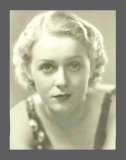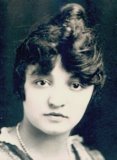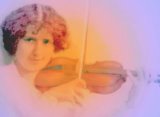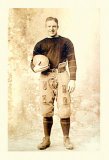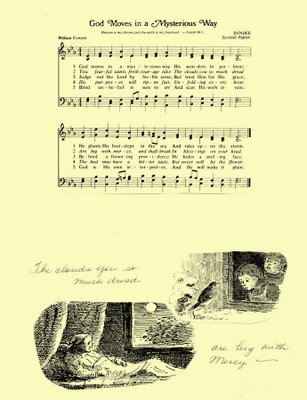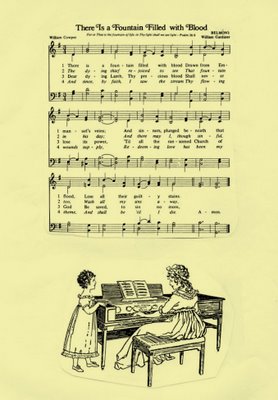Sunday, December 31, 2006

Welcome to MuseVision's New Year's Eve edition!
It's a nice "heads up" to 2007. We hope you will like it.
Start with" Vivaldi's Winter". A bit of Esoterica from Cliff,
our moderator. In fact he's heard playing 2nd Violin on the the
Vivaldi. You can just hear the soulful pizzicato floating across
cyberspace. Next we have some manips, of course, plus an essay
on poet William Cowper by a guest author, my friend "Germaine"
,
.
Enjoy!
Saturday, December 30, 2006
by "Germaine"
"Blessed are the pure in heart, for they will see God." Jesus promised. Yet clever people have doubted God's reality because nobody sees.To a friend in prayer Jesus compared Himself to an earthworm...oxygenating the soil beneath the feet of men, unseen. But the fault lies in the eyes which look with insolence and false expectations....as the author George Eliot wrote of two poets, Cowper and Young:
"The sum of our comparison is this - in Young we have that type of deficient human sympathy' that IMPIETY TOWARDS THE PRESENT and visible which flies for its motives, its sanctities, and its religion, to the remote, the vague, the unknown; In Cowper, we have that type of genuine love which cherishes things in proportion to their nearness, and feels its reverence grow in proportion to the intimacy of its knowledge."
WILLIAM COWPER
1731 - 1800
William Cowper was born in Herefordshire to a Church of England minister. His infancy was happy and loving; but his mother died when he was only six and boarding school followed. He suffered terribly from bullies. Later, at
Soon he faced a career move requiring a testing of his mettle in public...so that he might become a bureaucrat. This was so dreaded by him that he attempted suicide in desperation...three times. His brother packed him off to a mental hospital and then brought him home. So William was saved from a city career. The illness was real and never fully left him.
A tremendous born-again religious experience fell to him at this time. He became a passionate evangelical Christian, reading the Bible all day. This lasted a couple of years, during which he went to live in the countryside with a family called Unwin. This was an elderly minister of the C of E, his younger wife and two teenage children. William was by then 31. He bonded instantly with the family. They ate, drank, slept, walked, sang, and breathed evangelical religion...except for the old father who was tired of religion and frankly doubted if Jesus were divine. Next door came to live John Newton, the preacher who converted from the hair-raising and dangerous career of slave ship captain.
This religion is, at its most literal, purely mystical and incorporeal... full of platonic ideals and Bible preaching. Though begun in the Church of England and sacraments, it soon blossomed into platonic idealism and a belief in visions, dreams and emotions which were not subject to objective scrutiny. All evangelicals didn't go this far, being constrained by wholesome common sense. Some did, however; and William tried his very damnedest until he snapped. Beneath this conscious ambition something just refused...his soul...Jesus? Instead of seeing religious emotion as a temporary sweetener to lure one into a closer life with God, William mistook the experience for the norm in Christian life. He dreamed a beautiful child came from Heaven to comfort him. But when he dreamed choirboys slammed the gate of
Reading the Bible, praying, loving people, writing hymns, visiting the poor and sick with Newton...nothing mattered...all were dead works and God was his enemy. This certainty haunted the rest of his life. He tried to escape by avoiding religion altogether...for years. But not as an unbeliever, no. He believed with all his heart what the evangelical religion taught. His letters and opinions are full of moral ideals and Bible quotes. He died still certain of his damnation. But with his last breath his face took on a startled expression of happy surprise. As a Catholic I found the deepest affection for Cowper and his life...and was inspired to delve into the meaning of his soul's journey. He is thought, by skeptics, to have suffered "religious madness". But I came to disagree totally. His madness and misery were from anything but good religion.
Nor is it fair to blame evangelicals...for most of them had more common sense and faith in the fundamental goodness of ordinary life in spite of their doctrines. Slavery was abolished in
William spent the rest of his life with Mary Unwin, who was widowed early on. They were devoted and inseparable, Friends came and went. William was not at all effeminate, for all his sensitivities, and had crushes on several women...sparkling, affectionate ladies who kept them company. But Mary was the love of his life and I believe, still is! Their little village was Olney (pronounced like Pony) in central
At the casual joking of one of the sparkling ladies, William wrote a book in free verse, "The Task". To me it is beyond words. Turning, as he confesses, from writing of Beauty and Faith and Justice, he began, as the lady suggested, with the sofa. For William life was only just bearable when he forgot eternity, forgot predestination, forgot damnation...and fell under the charm of the Heavenly Father's natural world. Leaving Manichaeism with relief, he wrote with sympathy of a lunatic girl who slept outdoors, of raggle-taggle gypsies, of all nature and life around his little home with Mary. Forthright and unpretentious, he never drifts into pantheism like later romantics. His poetry had success! He attracted fans and letters...gifts and new friends. And what letters he wrote...
William wrote in graceful, simple language, unprofaned. He stuck to his kinship with all mortality, with all life. The happiness he snatched from "hell" was found in pets, walks, Mary. It is hard for people to imagine living with such a terrible sword hanging over their lives; but William did. Yet blessings came, too. One fan sent him a beautiful writing desk inlaid with silver and pearl. He became close friends with a neighboring family, the Throckmortons. One of their nieces played William's hymns and sang in a beautiful soprano. They gave William the keys to their estate, for his walking pleasure, and had him and Mary over for many meals. When John Newton heard of this, he was horrified and wrote William that he was flirting with the devil...for the Throckmortons were an old Catholic family. William stood up to this priggishness and remained friends with
This did not last. His mind broke with more visitations, voices, nightmares. Mary devoted herself to him always. Of course, she was always in love with him. Her own health went down with several strokes, which incapacitated her. William's despondent mind was always lucid about everyday living, holding her hand all day, fixing little meals. These dear old lunatics found good friends. His cousin, Harriet, Theodora's sister, came to care for them. Another moved them to
And so in prayer, I submit a sweet and original connection of scholastic Catholic dogma, which Grace builds on nature, with the earthly life of the Christian poet, William Cowper.
